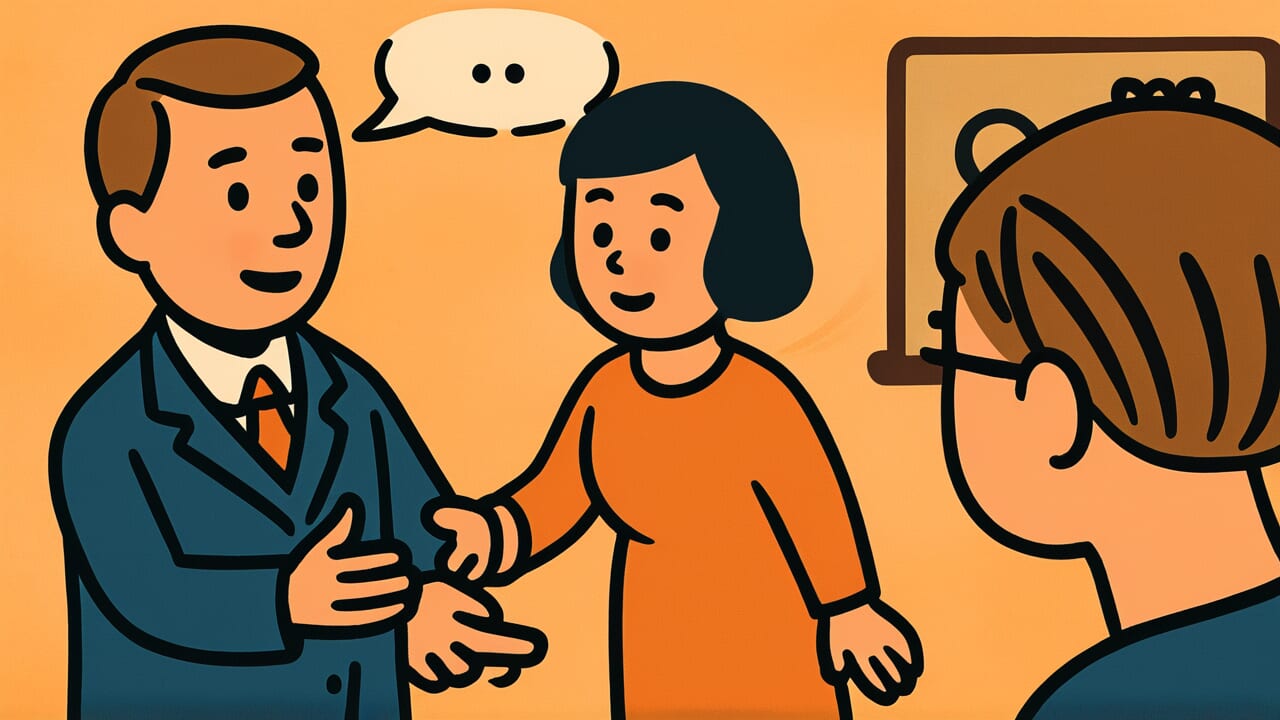How to Read “Both the talented and the untalented are each their own children”
Sai mo fusai mo, mata onono sono ko to nari
Meaning of “Both the talented and the untalented are each their own children”
This proverb means that talented people and those without talent both have their own unique value according to their position and abilities.
It teaches us not to judge people solely by their talents or look down on them.
Just because someone lacks talent doesn’t mean their existence has less value. Each person has their own role to play and things only they can do.
This proverb strongly warns against looking down on others or treating them with contempt.
Modern society tends to emphasize evaluation based on education and ability. But this proverb sounds an alarm against such one-sided values.
Talented people aren’t superior, and untalented people aren’t inferior. The perspective that everyone has value “in their own way” is extremely important today when we value diversity.
When you’re tempted to look down on someone, remembering this proverb can help you regain humility and respect.
Origin and Etymology
Multiple theories exist about the clear origin of this proverb. The classical Chinese writing style suggests possible influence from ancient Chinese philosophy.
However, it may also have been formed independently in Japan.
The contrasting combination of “talented” and “untalented” reflects the Confucian view of human nature. Confucianism teaches that people have different qualities, and recognizing these differences is important.
The distinctive part of this proverb is the phrase “each their own children.”
“Their own children” is interpreted to mean “value in their own way” or “their unique character.” In other words, both talented and untalented people are “their own children” – beings with inherent value.
This expression contains a warning against measuring people by uniform standards.
Similar expressions appear in moral instruction books from the Edo period. This suggests the proverb put into words values widely shared among common people.
In an era of strict social hierarchy, the idea that human value cannot be measured by birth or talent alone must have resonated with many people.
Usage Examples
- He may lack formal education, but as “Both the talented and the untalented are each their own children” says, his field experience has value no one can match
- I almost felt disappointed seeing my son’s grades, but “Both the talented and the untalented are each their own children” – I realized he has his own strengths
Universal Wisdom
Human society has always had a tendency to rank people. Who is superior, who is inferior.
Such comparisons sometimes hurt people and create division in society. But this proverb has been passed down for generations because of deep doubts about such simple hierarchies.
There is never just one measure of human value. Some people excel in academics, while others have kindness that heals hearts.
Some make quick decisions, while others think things through carefully. Each trait shines differently in different situations.
Yet we often judge people by just one standard.
This proverb shows mature human understanding. Praising talented people is easy, but finding value in those without talent requires deeper insight.
Our ancestors saw inherent dignity in each person beyond surface differences in ability.
Looking down on others actually reveals the narrowness of our own perspective. The breadth of heart to recognize diverse values is true wisdom.
This proverb speaks to us quietly but powerfully about this truth.
When AI Hears This
When evolutionary biology examines how both talent and lack of talent pass to children, a surprising fact emerges.
Every trait that exists today is evidence of survival in past environments.
Consider someone who struggles with math and has low language ability. Modern society might view them as “untalented.”
But in hunter-gatherer times, spatial awareness and physical ability were directly linked to survival. That person’s ancestors survived and reproduced using different abilities.
In evolutionary biology, any individual who reproduced had sufficiently high fitness. Traits that seem untalented were likely optimal solutions in some past environment.
Even more interesting is the perspective of maintaining genetic diversity. Having individuals with various abilities in a population increases the chance someone will survive environmental changes.
In other words, mixing the talented and untalented serves as insurance for the entire species.
Traits that seem useless function as preparation for future environmental changes.
This proverb isn’t just about heredity. It shows evolution’s logic that “every trait has a reason to exist.”
Traits called untalented could have been talents in different times or environments.
Lessons for Today
Modern society constantly forces you to compare yourself. Open social media and someone’s success jumps out at you.
At work, evaluation systems try to measure you with numbers. In such times, this proverb reminds us of something important.
Even when you feel inferior to someone, it might just be because there’s only one measuring stick. Even if you think you lack talent in some area, you have your own value.
It’s something only you have, irreplaceable by anyone else.
At the same time, this proverb teaches us how to treat others. Before labeling someone as “incapable,” pause for a moment.
That person may have strengths you haven’t noticed. Judging people by talent actually just narrows your own perspective.
What matters is a heart that accepts diversity. You and others each have your own “unique character.”
When you can respect these differences, the world around you becomes richer and warmer.



Comments